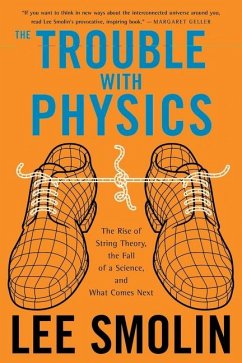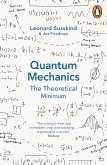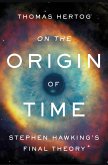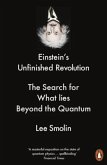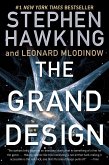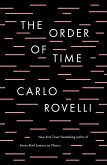A theoretical physicist and author of The Life of the Cosmos describes the evolution of modern-day string theory, the flaws in the attempt to formulate a'theory of everything'to explain all the forces and particles of nature and the origins of the universe, and their repercussions for physics and the need to get science back on track.
In this illuminating book, the renowned theoretical physicist Lee Smolin argues that fundamental physics -- the search for the laws of nature -- losing its way. Ambitious ideas about extra dimensions, exotic particles, multiple universes, and strings have captured the public's imagination -- and the imagination of experts. But these ideas have not been tested experimentally, and some, like string theory, seem to offer no possibility of being tested. Yet these speculations dominate the field, attracting the best talent and much of the funding and creating a climate in which emerging physicists are often penalized for pursuing other avenues. As Smolin points out, the situation threatens to impede the very progress of science. With clarity, passion, and authority, Smolin offers an unblinking assessment of the troubles that face modern physics -- and an encouraging view of where the search for the next big idea may lead.
Hinweis: Dieser Artikel kann nur an eine deutsche Lieferadresse ausgeliefert werden.
In this illuminating book, the renowned theoretical physicist Lee Smolin argues that fundamental physics -- the search for the laws of nature -- losing its way. Ambitious ideas about extra dimensions, exotic particles, multiple universes, and strings have captured the public's imagination -- and the imagination of experts. But these ideas have not been tested experimentally, and some, like string theory, seem to offer no possibility of being tested. Yet these speculations dominate the field, attracting the best talent and much of the funding and creating a climate in which emerging physicists are often penalized for pursuing other avenues. As Smolin points out, the situation threatens to impede the very progress of science. With clarity, passion, and authority, Smolin offers an unblinking assessment of the troubles that face modern physics -- and an encouraging view of where the search for the next big idea may lead.
Hinweis: Dieser Artikel kann nur an eine deutsche Lieferadresse ausgeliefert werden.

VON JÜRGEN KAUBE
In seinem Buch über die Stringtheorie hat der amerikanische Physiker Lee Smolin ein Kapitel "Wie kämpft man gegen die Soziologie?" überschrieben. Er beruft sich dabei auf eine unter Physikern offenbar übliche Redeweise. Wenn eine Theorie sich verbreitet, nicht weil sie bewiesen ist, sondern weil Kritik gegen die Gruppe, die sie vertritt, nicht durchkommt, sprechen sie davon, "die Soziologie" sei nun mal so. Will sagen: Was gilt, ist eine Einfluss- und keine Wahrheitsfrage. "Die Gemeinschaft hat beschlossen, dass die Stringtheorie stimmt, da kann man nichts machen. Man kann nicht gegen die Soziologie kämpfen."
Darin steckt eine Gleichsetzung von "sozial" mit "gemacht" und "wissenschaftlich" mit "beobachtet". Was objektiv ist, wäre demnach nicht von sozialen Umständen abhängig, sondern ist so, wie es ist, auch wenn es niemand merken würde. Es gab Atome auch schon, als noch niemand den Begriff oder eine Atomtheorie hatte. "Strings" hingegen, so Smolin, gibt es nur so lange, wie der Einfluss der Stringtheoretiker auf Journale und Berufungskommissionen sowie die physikalische Mode reicht.
Was immer für Strings gelten mag, soziologisch betrachtet, hat Smolin recht und unrecht zugleich. Er hat unrecht, weil es abenteuerlich wäre, sich wissenschaftliche Beweise als etwas Unsoziales vorzustellen, frei von Konventionen, unabhängig vom Gesichtsfeld der Gemeinschaft, in der sie geführt werden. Von Gaston Bachelard, dem großen französischen Wissenschaftsphilosophen, gibt es dazu ein schönes Beispiel. Sinngemäß zitiert: Wenn man einen Würfel zehn Zentimeter verschieben will, sagt Bachelard, kann man das alleine tun. Wenn man ihn einen Millimeter verschieben will, braucht man eine Maschine, also andere. Will man ihn aber einen Nanometer verschieben, dann braucht man eine ganze Theorie, also die Gemeinschaft der Wissenschaftler. Gerade die anspruchsvollste Objektivität beruht, mit anderen Worten, auf sozialen Vorleistungen.
Aber Smolin hat auch recht. Die Wahrheit kann nicht damit leben, sozial bedingt zu sein. Das beste Beispiel sind jene Studien, die nachweisen wollen, dass wissenschaftliche Wahrheit auch nur eine Konstruktion voll willkürlicher Festlegungen und Machenschaften ist, abhängig von Paradigmen und voller "Soziologie". Denn sie selbst nehmen für ebendiese Erkenntnis durchaus in Anspruch, dass sie nicht konstruiert, sondern objektiv beobachtet worden sei. Die sozial konstruierte Erkenntnis ist also immer die Erkenntnis der anderen.
Lee Smolin: "Die Zukunft der Physik. Probleme der Stringtheorie, und wie es weitergeht." München 2009, Kapitel 16.
Alle Rechte vorbehalten. © F.A.Z. GmbH, Frankfurt am Main
"A splendid, edifying report from the front lines of theorectical physics . . . A wonderful gift." The San Francisco Chronicle
""An uncommonly clear and confident account . . . Even those who differ with many of Smolin's contentions can applaud his bringing physicists' anguished night thoughts into the clear light of day."-Tim Ferris
"If you want to think in new ways about the interconnected universe around you, read Lee Smolin's provocative, inspiring book."-Margaret Geller
"The best book about contemporary science written for the layman that I have ever read ... Read this book. Twice."
The Times of London
""An uncommonly clear and confident account . . . Even those who differ with many of Smolin's contentions can applaud his bringing physicists' anguished night thoughts into the clear light of day."-Tim Ferris
"If you want to think in new ways about the interconnected universe around you, read Lee Smolin's provocative, inspiring book."-Margaret Geller
"The best book about contemporary science written for the layman that I have ever read ... Read this book. Twice."
The Times of London

